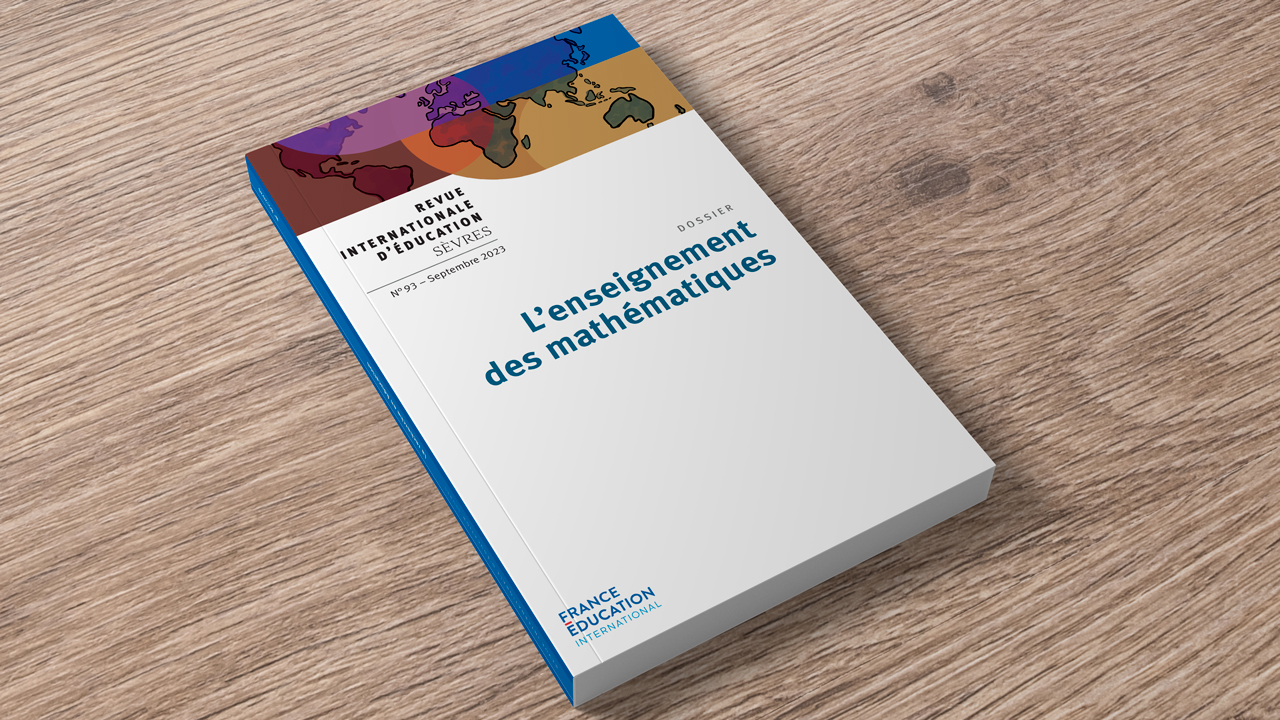Teaching mathematics

Issue n°92, April 2023
An issue coordinated by: Jean-François Chesné and Yohan Yebbou
The teaching of mathematics is a one of the top priorities of all education systems. Through ten case studies from four continents, this issue sets out to identify what mathematics is taught around the world, and for what purposes.
The teaching of mathematics is a one of the top priorities of all education systems. Through ten case studies from four continents, this issue sets out to identify what mathematics is taught around the world, and for what purposes.
Four articles relate to European countries (France, Iceland, Portugal and the United Kingdom). They vary quite distinctly in terms of the organisation of mathematics teaching and pupil attainment.
Two articles from Asia (China and India) shed an original light on mathematics teaching that is rooted in ancestral cultures but changing, probably more so than in Europe, in response to the social and economic changes these countries are currently undergoing.
The two articles from Latin America (Argentina and Chile) highlight the efforts of researchers so that curriculum design and teacher training balance disciplinary and didactic knowledge. The contribution from Quebec sets forth a path that is attracting attention for shaping a culture of mathematics in schools based on continuity and pragmatism, leading to enviable results for students.
This is supplemented by an analysis of results in mathematics from an international evaluation carried out in French-speaking countries of sub-Saharan Africa (Pasec 2019). This study highlights the low attainment of primary school pupils, as well as the fragility of teachers' understanding of content and teaching methods.
Five interrelated questions emerge from the issue as a whole. Are the current challenges in mathematics teaching the same everywhere? What mathematical content should be taught and how has it evolved over the past few decades? How is mathematics taught, and how much leeway do schools and teachers have? Who teaches mathematics and what role does teacher training play? Finally, what do national and international assessments such as Pisa and Timms tell us about the effects of this teaching and what is the impact of such studies?
When it comes to teaching mathematics, many education systems are facing major challenges in achieving the objectives they have set themselves in terms of the quality of the education offered to all pupils, equal opportunities based on social background or gender, and teacher recruitment.
The guest editors are Jean-François Chesné, executive coordinator of the National Centre for Studying Education Systems (CNESCO) and Yohan Yebbou, Inspector General of Education, Sport and Research.
To order this issue
